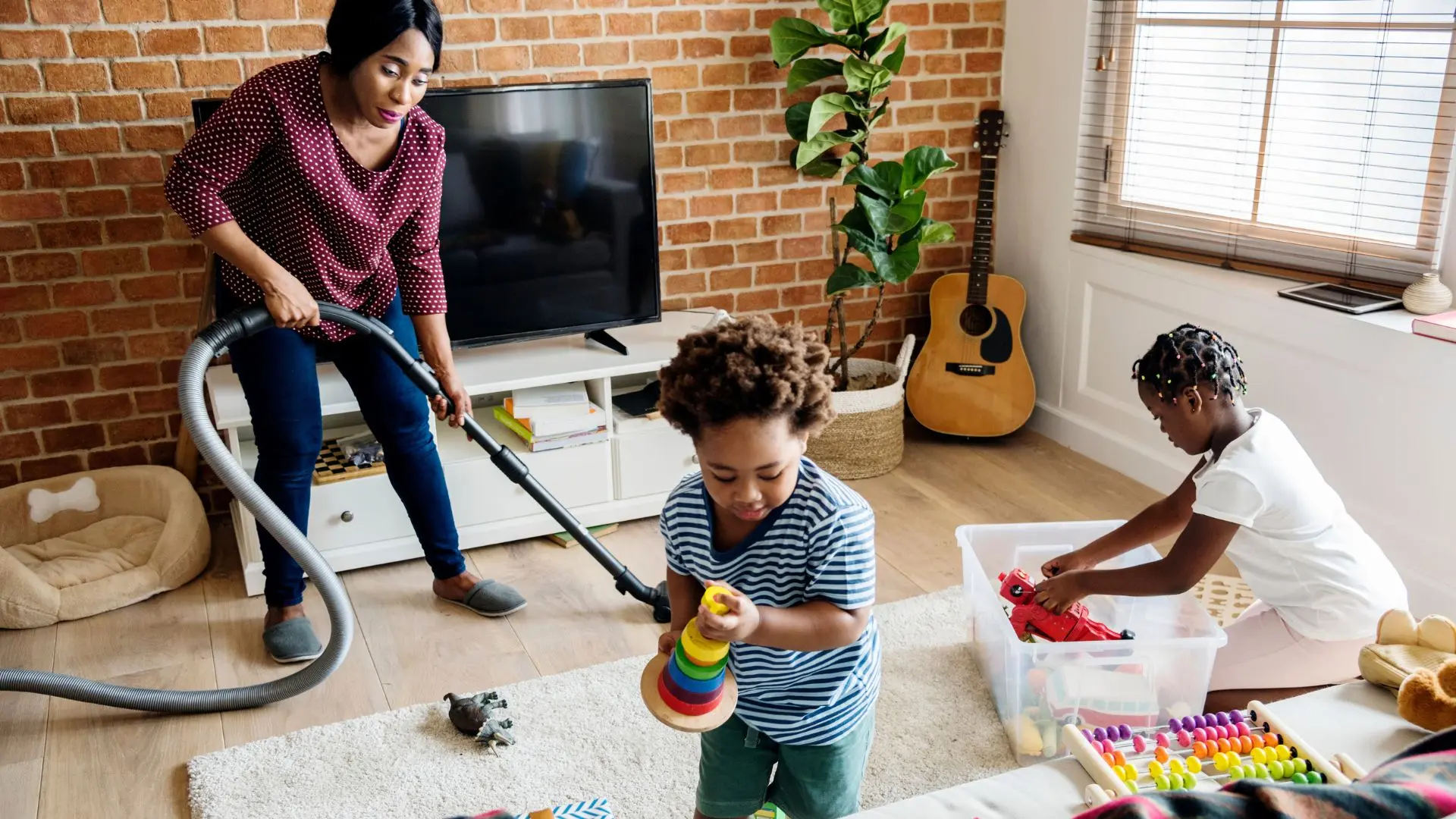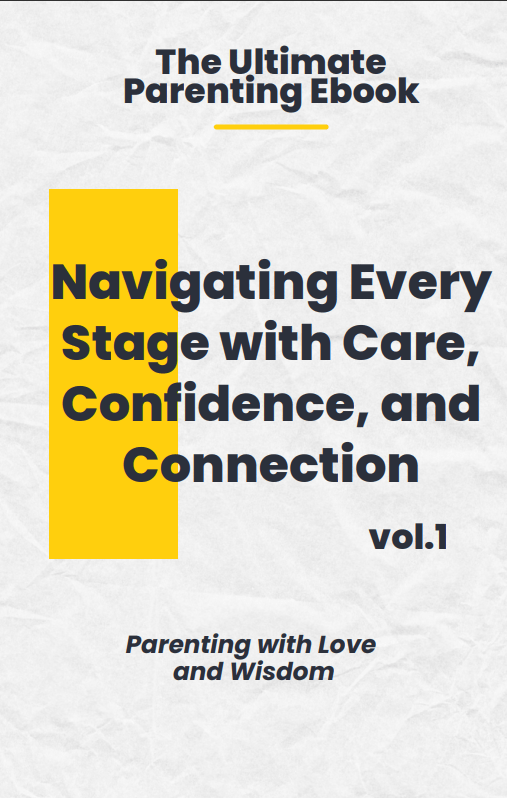Parenting is a beautiful journey, but it can also be incredibly overwhelming, leading to parenting burnout if not managed carefully. Whether you’re struggling with exhaustion, feeling emotionally drained, or just finding it hard to enjoy time with your kids, you’re not alone.
Parenting burnout affects many parents, but the good news is that there are ways to prevent and manage it. In this blog, we’ll explore practical strategies to combat parenting burnout and create a healthier, more balanced life for you and your family.

In This Blog
ToggleWhat is Parenting Burnout?
Parenting burnout can be defined as a chronic state of stress and exhaustion specific to parenting. Unlike regular stress, which may come and go, parenting burnout is characterized by a prolonged period of feeling overwhelmed, emotionally drained, and unable to meet the demands of parenting.
Research published in the Journal of Child and Family Studies indicates that parents who experience high levels of stress often report feelings of burnout, impacting their ability to effectively care for their children. Factors contributing to parenting burnout include:
- Excessive Workload: Juggling numerous responsibilities at home, from daily chores to managing schedules.
- Social Isolation: A lack of support from family and friends, leading to feelings of loneliness.
- Unrealistic Expectations: The pressure to adhere to societal standards of “perfect” parenting can create additional stress.
Understanding these factors is crucial for parents seeking to recognize and combat parenting burnout.
Symptoms of Parenting Burnout
Recognizing the symptoms of parenting burnout is crucial in addressing it effectively. Here are the common signs to watch for:
Emotional Symptoms
- Irritability and Frustration: Feeling easily annoyed or angry, often over small matters.
- Feelings of Inadequacy or Guilt: Constantly questioning your abilities as a parent and feeling guilty about not doing enough.
- Detachment from Children: Experiencing emotional disconnection from your children, leading to feelings of isolation.
Physical Symptoms
- Chronic Fatigue: A profound sense of tiredness that doesn’t improve with rest.
- Sleep Disturbances: Difficulty falling or staying asleep, leading to further exhaustion.
- Psychosomatic Issues: Physical symptoms such as headaches, stomachaches, or muscle tension without a clear medical cause.
Behavioral Symptoms
- Withdrawal from Social Interactions: Avoiding social gatherings and feeling isolated from family and friends.
- Decline in Motivation: Losing interest in parenting tasks or activities that were once enjoyable.
If you recognize these symptoms in yourself, know that acknowledging them is the first step toward healing.
Stages of Parenting Burnout
Understanding the stages of parenting burnout can help you identify where you are in your journey.

Stage 1: Honeymoon Phase
In the early days of parenting, there is often an exhilarating sense of joy and excitement. You might feel invincible and ready to tackle anything that comes your way.
Stage 2: Stress Phase
As the novelty wears off, parents often start to experience stress. Juggling responsibilities, sleepless nights, and unexpected challenges become more apparent.
Stage 3: Burnout Phase
This stage is marked by emotional exhaustion, cynicism, and a diminished sense of accomplishment. Parents may feel like they are giving all their energy without receiving any fulfillment in return.
Stage 4: Habitual Burnout
If left unaddressed, parenting burnout can evolve into habitual burnout. This stage may lead to long-term emotional and physical health problems and can significantly impact relationships with children and partners.
Assessing Parenting Burnout
Self-assessment is a critical component in recognizing parenting burnout. Here are some questions to consider:
- Do I feel constantly exhausted, even after resting?
- Am I more irritable or frustrated than I used to be?
- Do I find it hard to enjoy time with my children?
- Have I lost interest in activities that once brought me joy?
- Do I frequently feel overwhelmed by daily tasks?
- Am I increasingly critical of myself or my parenting abilities?
- Do I feel detached or emotionally disconnected from my children?
- Have I noticed changes in my eating or sleeping patterns?
- Am I avoiding social interactions or support from family and friends?
- Do I often feel like I’m failing as a parent?
If you find that you consistently answer affirmatively to these questions, it may be time to seek support from a mental health professional.
Treatments for Parenting Burnout
Addressing parenting burnout requires a multi-faceted approach. Here are some effective treatments to consider:
Professional Counseling and Therapy
Engaging with a therapist who specializes in family dynamics can provide a safe space to discuss your feelings. Cognitive Behavioral Therapy (CBT) is particularly effective in helping parents reframe negative thoughts and develop healthier coping mechanisms. Talking to a professional can also help you gain insight into your parenting patterns and triggers.
Medication
For some parents, medication may be a necessary component of treatment, especially if experiencing anxiety or depression. Consulting with a healthcare provider can help you explore options that may work best for your situation. It’s essential to approach this step carefully and ensure that it’s part of a comprehensive treatment plan.
Mindfulness and Relaxation Techniques
Incorporating mindfulness practices into your daily routine can help mitigate the effects of parenting burnout. Consider:
- Meditation: Even a few minutes a day can help center your thoughts and reduce stress.
- Yoga or Tai Chi: These practices combine physical movement with mindfulness, promoting relaxation and mental clarity.
- Breathing Exercises: Simple techniques, like deep belly breathing, can help manage acute stress and anxiety.
Strategies for Preventing and Managing Parenting Burnout
While treatments are essential, proactive strategies can also play a significant role in managing and preventing parenting burnout. Here are some actionable steps:

1. Prioritize Self-Care
Schedule daily time for self-care activities like reading, exercising, or simply relaxing, even if just for 10–15 minutes. Also, Fuel your body with healthy foods that provide sustained energy.
2. Set Realistic Expectations
Let go of the idea of being a “perfect” parent. Aim to be a “good enough” parent who meets essential needs and gives space for flexibility.
3. Practice Mindfulness and Meditation
Apps like Headspace and Calm offer guided meditation sessions that can help manage stress and bring more calm to your daily routine.
4. Establish a Routine
Develop a consistent schedule for meals, sleep, and family time. Predictability can reduce stress and help the household run more smoothly.
5. Delegate Responsibilities
Don’t try to do it all. Delegate tasks to your partner, or older children, or even hire help for chores if possible.
6. Use Time-Management Apps
Apps like Trello, Todoist, or Google Keep can help you organize tasks, set priorities, and allocate time effectively, keeping you on track.
7. Create a Support Network
Build a strong support system of friends, family, or other parents. Sharing your experiences can reduce feelings of isolation.
8. Take Breaks Throughout the Day
Schedule short breaks during the day, even if it’s just 5 minutes, to step away, breathe, or enjoy a quiet moment to reset your mind.
9. Engage in Physical Activity
Exercise releases endorphins, which improve mood. Apps like Nike Training Club or 7-Minute Workout can help fit quick, effective workouts into a busy day.
10. Limit Screen Time for the Whole Family
Set tech-free times in your household to encourage interaction and relaxation. Consider apps like Screen Time or Family Link to manage and monitor device usage.
11. Practice Gratitude
Take a few moments each day to note things you’re grateful for. This helps shift your focus from stress to positive aspects of life. Journaling apps like Day One can help track gratitude daily.
12. Seek Professional Support
If the pressure becomes overwhelming, seek therapy or counseling. Many therapists offer virtual sessions through platforms like BetterHelp or Talkspace, providing convenient access to mental health professionals.
13. Celebrate Small Wins
Focus on the little victories—whether it’s getting through a challenging day or finding 10 minutes for yourself. Acknowledge and celebrate these moments.
14. Get Adequate Sleep
Prioritize good sleep hygiene by setting a consistent sleep schedule and creating a relaxing bedtime routine. Apps like Sleep Cycle can help track and improve sleep quality.
15. Say ‘No’ More Often
Learning to say no to non-essential tasks and commitments will protect your time and energy. Prioritize what matters most—your well-being and your family
16. Stay Connected with Your Partner
Regularly check in with your partner about how you’re feeling. Working together to share the parenting load can help reduce stress and create a sense of teamwork.
17. Plan Downtime with Your Kids
Schedule undistracted time with your children. Engage in activities you all enjoy, whether it’s a family walk, cooking together, or playing board games.
18. Ask for Help When Needed
Reach out to family, friends, or even paid childcare if needed. It’s okay to lean on others for support.
19. Simplify Your Schedule
Avoid overloading your daily schedule. Leave gaps between tasks for rest or potential changes to prevent feeling rushed or stressed.
20. Utilize Meal Planning Apps
Apps like Mealime or Yummly can simplify meal planning, making grocery shopping and preparing food less time-consuming and stressful.
21. Use Family Organizer Apps
Apps like Cozi can help manage your family’s schedule in one place, from appointments to grocery lists. Everyone in the family can stay on the same page.
22. Practice the 5-Minute Rule
When a task feels overwhelming, commit to working on it for just five minutes. You’ll often find the momentum to keep going or feel accomplished in that short time.
23. Let Go of Perfectionism
Understand that it’s okay if the house isn’t spotless or if your child doesn’t get every single activity done perfectly. Letting go of perfection helps reduce mental load.
24. Rotate Chores Among Family Members
Create a rotating chore schedule to distribute household responsibilities evenly. This prevents any one person from becoming overwhelmed.
25. Incorporate Family Fun Days
Designate a day or part of the weekend for fun, low-pressure activities with your family. It could be a picnic, a movie night, or a game day. Fun activities strengthen family bonds and reduce stress.
26. Develop Positive Self-Talk
Avoid being overly critical of yourself. When negative thoughts arise, try to reframe them with positive affirmations like, “I’m doing my best” or “It’s okay to have a tough day.”
27. Encourage Independent Play
Allow children to engage in independent play for age-appropriate periods. This fosters creativity in kids and gives parents a brief respite.
28. Schedule Annual Breaks
If possible, schedule vacations or “staycations” where you can truly unwind with your family. Unplug from work and other responsibilities during these times to fully recharge.
Conclusion
Parenting burnout is a real and often overwhelming experience for many parents. Acknowledging your feelings is the first step toward finding balance and reclaiming joy in your parenting journey. Remember that you are not alone in this struggle, and help is available.
By recognizing the symptoms, understanding the stages, and implementing effective treatments and strategies, you can combat parenting burnout and create a healthier environment for yourself and your family.
If you’re feeling overwhelmed, take a moment to pause, breathe, and reach out for support. You deserve care, and your well-being is essential for raising happy, healthy children.
You may also be interested in : 23 Qualities of a Good Father Every Child Needs
FAQs
1. What is parenting burnout?
Parenting burnout is a state of physical, emotional, and mental exhaustion that results from the overwhelming demands of raising children. It can lead to feelings of frustration, detachment, and a diminished sense of accomplishment. Recognizing it early is crucial for finding effective solutions.
2. What are the common symptoms of parenting burnout?
Common symptoms include chronic fatigue, irritability, emotional detachment, a sense of inadequacy, difficulty enjoying family time, and heightened stress levels. Parents may also experience changes in sleep patterns and increased physical ailments.
3. What stages are associated with parenting burnout?
Parenting burnout typically progresses through stages: emotional exhaustion, detachment from responsibilities, and a sense of reduced personal accomplishment. Recognizing these stages can help parents take proactive measures to address burnout before it worsens.
4. How can I assess my level of parenting burnout?
Self-assessment can involve reflecting on feelings of exhaustion, irritability, and enjoyment in parenting. You can also take online quizzes specifically designed to gauge parenting burnout levels, helping you determine if professional support is needed.
5. What treatments are available for parenting burnout?
Treatments may include therapy, counseling, or joining support groups. Additionally, engaging in self-care practices, establishing routines, and prioritizing mental health can significantly alleviate symptoms of parenting burnout.
6. What are effective prevention strategies for parenting burnout?
Prevention strategies include setting realistic expectations, practicing mindfulness, seeking social support, delegating tasks, and prioritizing self-care. Establishing a balanced routine is crucial for maintaining mental health.
7. Can parenting style affect the likelihood of burnout?
Yes, certain parenting styles, particularly perfectionistic or overly involved approaches, can increase the risk of burnout. It’s essential to adopt a balanced style that allows for flexibility and self-compassion.
8. Is parenting burnout common?
Yes, parenting burnout is quite common, especially among parents of young children or those facing additional stressors like work demands or financial pressures. Recognizing its prevalence can help parents feel less isolated.
9. How does parenting burnout impact children?
Parenting burnout can affect children by reducing the quality of parental interactions, leading to emotional withdrawal, inconsistent discipline, and increased anxiety. Prioritizing self-care is essential for healthy family dynamics.
10. Can I recover from parenting burnout?
Yes, recovery is possible! It involves acknowledging your feelings, seeking support, making lifestyle changes, and implementing effective coping strategies. With time and effort, many parents successfully overcome burnout.
11. Are there apps that can help with parenting burnout?
Yes, several apps can assist in managing parenting burnout. For instance, mindfulness apps like Headspace, organizational tools like Cozi, and parenting communities like Peanut can provide support and resources.
12. How important is self-care in managing parenting burnout?
Self-care is vital for managing parenting burnout. Taking time for yourself can help recharge your emotional batteries, improve your mood, and enhance your overall ability to cope with parenting challenges.
13. What role does community support play in preventing burnout?
Community support is crucial in preventing burnout, as sharing experiences and seeking advice can alleviate feelings of isolation. Engaging with friends, family, or parenting groups provides valuable encouragement.
14. When should I seek professional help for parenting burnout?
Seek professional help if you find that your feelings of burnout persist despite trying self-care strategies or if it begins to interfere with daily functioning and family relationships. A mental health professional can offer guidance and coping techniques.
15. Can I discuss parenting burnout with my partner?
Absolutely! Open communication with your partner about parenting burnout is essential. Sharing feelings and concerns can foster mutual understanding, support, and collaboration in managing parenting responsibilities.




